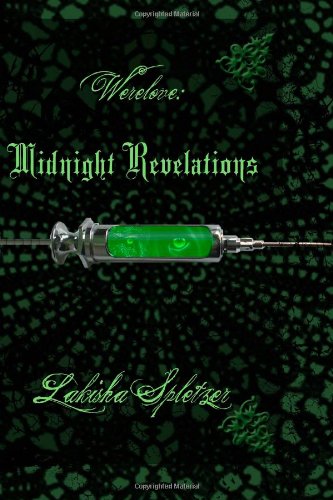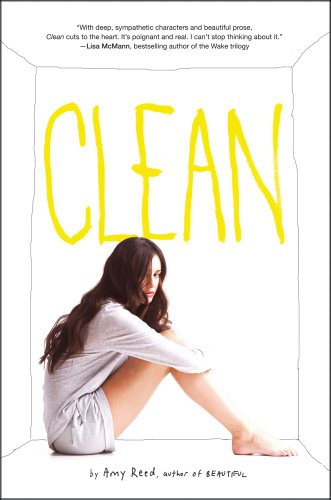Title: Hush, Hush
Author: Becca Fitzpatrick
Publisher: Simon & Schuster/ Simon & Schuster Children's Publishing
Release Date: October 13, 2009
Pages: 391 pages (paperback)
How I Got the Book: Bought and read it for the H.Y.P.E. Project (
details here)
When Nora and Patch are forced together as lab partners, Nora would rather fall to her death than put up with his elusive answers to her questions, his teasing, and his infuriatingly handsome face and hypnotizing eyes. It seems Patch was put on earth just to drive her crazy.
But before long, Nora's defenses begin to break down as her curiosity about Patch heats up. Why does he always seem to be wherever she is and know exactly what she's thinking? How does he know what to say to both attract and repulse her? And what is up with those V-shaped scars on his chiseled back?
As their connection grows stronger, Nora's own life becomes increasingly fragile. Nora needs to decide: Is Patch the one who wants to do her harm of the one who will keep her safe? Has she fallen for one of the fallen?
Becca Fitzpatrick's New York Times bestselling debut is a page-turning leap into the unknown world of fallen angels. Do you have someone to catch you?
Review:
Something is off about Patch Cipriano and his unfortunate new biology partner Nora Grey is determined to find out what's it is. She can tell there's something more going on behind that pretty face and those demeaning remarks of his. In her investigation, she comes to find herself attracted to him and she could quite possibly be falling in love with him, but could what she's finding be true? Could Patch really be a fallen angel out to kill her (and maybe Vee too, but who cares about her?)? If it is, it doesn't look like he's the only one who wants to see Nora dead. Strange things are happening and only some of them are in her head.
Characters
Characterization is thin and calling them two-dimensional is an insult to the term. Nora seems to lack any brains and my I've no doubt she is mentally unstable; if she thinks faking a bomb threat to get Patch's file is okay because she's his biology partner, something is wrong. The only person I can stand is Marcie Millar, the classic mean girl (who apparently becomes a love rival in the second book or something; I've got no plans to read it, so I don't know all the details), but she is busy being slut-shamed and made the butt of a thousand jokes. Being mean makes her a bad person, not being flirtatious or sexual. Got that, book? Okay.
Two characters in the cast stand out for the wrong reasons. Vee may be the worst best friend I've ever had the displeasure to know in both fiction and real life, and I've had a terrible best friend of my own (but that's another story). She makes excuses for a guy who threatened her "best friend" Nora, abandons Nora, and pressures Nora to be with a guy she does not like, among other things. She is the second-worst character in this book.
The worst? Patch Cipriano. His behavior is disgusting, borderline abusive, and the sort of behavior parents tell their children to watch out for because it could turn into a toxic or abusive relationship. When the heroine is genuinely afraid of her love interest and thinks he might rape her (and there were plenty of moments where it seemed like he would do just that) as in Hush, Hush, the love interest is on my blacklist. There's being a bad boy or anti-hero (which requires redeeming traits) and then there's being a borderline rapist, which Patch is. He's the polar opposite of sexy.
Pacing/Plot
The pacing and plot are disjointed. This is about how the novel goes: Nora and Patch are falling in love (personally, I think they're falling in lust, which would be fine if it weren't being passed off as love when the two are very different), a creepy event or two happens once in a while, Nora and Patch fall in love some more, more creepy things, rotate between the two and add in liberal amounts of disgusting behavior by Patch added where needed, big reveal, sudden reveal of villains, an almost-sex break, climactic scene, and end on a sappy note. That is Hush, Hush in a nutshell, only it's far less interesting.
Themes/Conflicts
Hush, Hush competes with only one other novel for the award of Worst Themes. According to this book, it is okay for a boy to humiliate, threaten, dismiss, and treat a girl badly because that just makes him a sexy bad boy. This is probably only okay when the guy is as insanely hot as Patch is supposed to be (I don't find him hot; I find that when a guy has a personality as pleasant as the smell of dog crap, it becomes impossible to appreciate how hot they are) because if it were a plain or ugly guy doing it, it would be Not Okay. Nora never has any true conflict to deal with and the book's conflict isn't genuine.
What I hate most about this book is how its themes help glorify creepy, pseudo-rapist behavior through Nora's initial weak rejection and ultimate unconditional acceptance of the way Patch treats her (which does not change throughout the entire novel). His behavior is horrifying and the people who instead call it flattering are often the people who say I should be flattered at all the awful, creepy things guys have said and done to me over the years when I didn't want them behaving like that towards me and made it clear.
There are simply so many offensive ideas and phrases within the book, such as the heavy reinforcing of rape culture, but I don't have the space or time to cover them all.
Writing
Painful. Description is often bad or repetitive and there appears to be no such thing as subtlety because hints are like a bag of bricks to the head each time they pop up. Then it gets lazy for the sake of plot convenience when the symptoms of a concussion, such as difficulty or unwillingness to talk due to the injury, are waved off so Vee can testify to Nora about her attacker and when Vee gets out of the hospital far quicker than someone in her condition would, or when Elliot is identified in a news story as someone questioned in the death of another student. I don't need to be a three-year journalism student to know no news service would identify a minor if they had only been questioned. Charged or convicted? Often, yes. Questioned? No.
There is also one offensive issue regarding word choice that I would like to bring up. Vee, an overweight character, is described as "voluptuous" multiple times. Right now, the United States (where the book is set and where I, the author, and countless fans live) is experiencing a problem with obesity and there are multiple campaigns against it. What comes to mind when you think of "voluptuous" women? Personally, I think of women with large breasts, usually thin waists, and sometimes large butts. At one time, it was used to describe more than women with that figure, but that is what it's used to describe most often now.
Vee is clearly not this body type from her description and the book creeps around describing her as overweight or fat. The creeping around is bad enough because of how much it reveals about what Nora really thinks of Vee, but the I don't appreciate that women with that sort of figure (hourglass figure, right?) are indirectly being called fat. Nine times out of ten, they can't control their figure that easily; losing weight won't make their breasts any smaller in most cases because it's genetic. This is the author's problem now, not the book's. If there's anything the author can control, it's the specific word choice.
Logic
Almost nonexistent. Why would an entire class as important as biology be axed over sex ed? More likely, the teaching guidelines would be changed to exclude sex ed. No teacher would ever allow one student to humiliate another the way Patch humiliated Nora and if they did, they wouldn't get away with it. Then there's what happened due to the lazy writing, discussed in the writing section. The biggest fart in logic may be, as I said earlier, how in the world Nora falls in love with Patch when he treats her so terribly. Someone can make you feel tingly all over and make you want to screw them, but that doesn't always mean you're in love. That's lust, a separate entity from love, and that's what's really between Nora and Patch.
I may not be a mother, but I am baffled and horrified at the behavior of Nora's mother. Just a year after the murder of her husband, Nora's mom has a job that takes her far away from her daughter for long periods of time and they appear to have very little contact with one another. Shouldn't she be getting closer, not farther away? I speak from personal experience on that. Honestly, there were so many farts in logic, writing, characterization, and everything else that I couldn't find the words a few times and could only write squiggles in the book.
Was it worth the hype?
The hype that this book is sexy, dark, has the sexiest hunk of man/fallen angel to grace the pages of a book, romantic, and great? Absolutely not.
The hype that this book is terrible, infuriating, boring, anti-feminist, provides the world with both one of the worst best friends/friendships to grace the pages of a book and the worst love interest to exist in any media, and is most likely the most reprehensible YA novel to be published in recent memory? Without a doubt, yes. I wouldn't wish this book on my worst enemy.
Bonus cover section
This may be the best part of the book: its cover. While the color scheme has difficulty standing out, the image is striking and can easily catch the eye of someone passing by in a bookstore (which I tested out and confirmed last time I visited a bookstore). However, it immediately gives away what the book is about and if a passing reader decides to buy the book and read it, they will probably become frustrated that it takes Nora so long (about 250 pages) to figure out what Patch is when they knew before they even began reading.
0 stars!
What am I reading next?: Eyes Like Stars by Lisa Mantchev
















